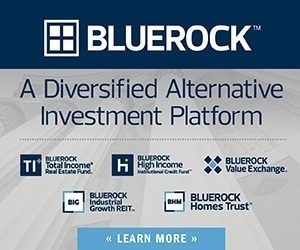SEC Proposes to Update Accredited Investor Definition to Increase Access to Investments
SEC Press Release December 18, 2019 (2019-265)
 The Securities and Exchange Commission voted to propose amendments to the definition of accredited investor, one of the principal tests for who is eligible to participate in our private capital markets. The proposal seeks to update and improve the definition to more effectively identify institutional and individual investors that have the knowledge and expertise to participate in our private capital markets.
The Securities and Exchange Commission voted to propose amendments to the definition of accredited investor, one of the principal tests for who is eligible to participate in our private capital markets. The proposal seeks to update and improve the definition to more effectively identify institutional and individual investors that have the knowledge and expertise to participate in our private capital markets.
“The current test for individual accredited investor status takes a binary approach to who does and does not qualify based only a person’s income or net worth,” said Chairman Jay Clayton. “Modernization of this approach is long overdue. The proposal would add additional means for individuals to qualify to participate in our private capital markets based on established, clear measures of financial sophistication. I also am pleased that the proposal specifically recognizes that certain organizations, such as tribal governments, should not be restricted from participating in our private capital markets.”
The proposed amendments would allow more investors to participate in private offerings by adding new categories of natural persons that may qualify as accredited investors based on their professional knowledge, experience, or certifications. The proposal would also expand the list of entities that may qualify as accredited investors by, among other things, allowing any entity that meets an investments test to qualify.
The public comment period will remain open for 60 days following publication in the Federal Register.
* * *
FACT SHEET
Amending the “Accredited Investor” Definition
Dec. 18, 2019
The Securities and Exchange Commission today proposed amendments to the definition of “accredited investor” in the Commission’s rules and the definition of “qualified institutional buyer” in Rule 144A under the Securities Act of 1933. The proposed amendments to the accredited investor definition would add new categories of qualifying natural persons and entities and make certain other modifications to the existing definition. The proposed amendments to the qualified institutional buyer definition would expand the list of eligible entities under that definition.
Background
In June 2019, the Commission issued a concept release that solicited public comment on possible ways to simplify, harmonize, and improve the exempt offering framework under the Securities Act to promote capital formation and expand investment opportunities while maintaining appropriate investor protections. In the concept release, the Commission requested comments on possible approaches to amending the accredited investor definition, which is a central component of several exemptions from registration such as Rules 506(b) and 506(c) of Regulation D, and plays an important role in other federal and state securities law contexts.The concept release was preceded by a Commission staff report issued in December 2015 on the accredited investor definition, which examined the background and history of the definition and considered comments and recommendations on amending the definition.
After considering the views expressed by members of the public as well as recommendations from the Commission’s Small Business Capital Formation Advisory Committee, the Commission’s Investor Advisory Committee and the annual SEC Government-Business Forum on Small Business Capital Formation, the Commission proposed amendments to the accredited investor definition as an initial step in a broader effort to consider ways to harmonize and improve the exempt offering framework.
Highlights
The proposed amendments to the accredited investor definition would add new categories of natural persons based on professional knowledge, experience, or certifications. The proposed amendments would also add new categories of entities, including a “catch-all” category for any entity owning in excess of $5 million in investments. In particular, the proposed amendments to the accredited investor definition would:
· add new categories to the definition that would permit natural persons to qualify as accredited investors based on certain professional certifications and designations, such as a Series 7, 65 or 82 license, or other credentials issued by an accredited educational institution;
· with respect to investments in a private fund, add a new category based on the person’s status as a “knowledgeable employee” of the fund;
· add limited liability companies that meet certain conditions, registered investment advisers and rural business investment companies (RBICs) to the current list of entities that may qualify as accredited investors;
· add a new category for any entity, including Indian tribes, owning “investments,” as defined in Rule 2a51-1(b) under the Investment Company Act, in excess of $5 million and that was not formed for the specific purpose of investing in the securities offered;
· add “family offices” with at least $5 million in assets under management and their “family clients,” as each term is defined under the Investment Advisers Act; and
· add the term “spousal equivalent” to the accredited investor definition, so that spousal equivalents may pool their finances for the purpose of qualifying as accredited investors.
The proposed amendments to the qualified institutional buyer definition in Rule 144A would add limited liability companies and RBICs to the types of entities that are eligible for qualified institutional buyer status if they meet the $100 million in securities owned and investment threshold in the definition. The proposed amendments would also add a “catch-all” category that would permit institutional accredited investors under Rule 501(a), of an entity type not already included in the qualified institutional buyer definition, to qualify as qualified institutional buyers when they satisfy the $100 million threshold.
What’s Next?
The proposal will be subject to a 60-day public comment period. To submit comments, use the SEC’s Internet submission form or send an email to rule-comments@sec.gov.
Source: SEC











